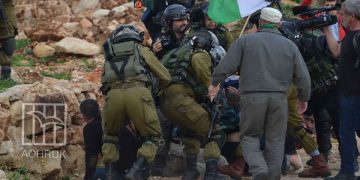These days mark the third anniversary of the arrest of social activist Farhan al-Shalaqi, who was detained on 26 November 2022 over old tweets in which he had expressed his views years earlier, among them prayers for the late Egyptian president Mohamed Morsi, praise for the achievements of Turkish President Recep Tayyip Erdoğan, and objections to the removal of certain Ottoman-era landmarks in Mecca and Medina.
In March 2024, al-Shalaqi received a sentence widely described as severe: 15 years in prison, handed down on the basis of these past posts on the platform X, in a ruling that underscores the increasingly punitive approach towards digital expression inside the kingdom.
Al-Shalaqi, a retired employee of the company SABIC, faced no accusations of violence or incitement; his case rested solely on personal opinions concerning public affairs and regional politics.
His arrest and prosecution form part of a broader pattern of escalating restrictions on freedom of expression in Saudi Arabia in recent years. Since Crown Prince Mohammed bin Salman assumed his post in 2017, the country has witnessed a growing wave of arrests targeting activists, online commentators, and academics for their views or interactions on social media platforms.
Such practices stand in direct contradiction to fundamental principles of international human rights law, which affirm that peaceful expression, even when addressing political figures or matters of heritage and history, must not be treated as a crime. Moreover, the imposition of harsh penalties for old posts conflicts with the principle of proportionality, as well as with legal standards requiring a real and immediate threat to public security before freedom of expression may be curtailed.
Three years on from al-Shalaqi’s arrest, his case continues to reflect a wider climate of repression intensifying across the country, where lengthy prison sentences are increasingly imposed on individuals whose only act is to voice an opinion, in the absence of clear pathways for fair appeal or review of harsh rulings linked to peaceful online activity.
Farhan al-Shalaqi’s case has become part of a broader portrait of the human rights landscape in the kingdom, where individuals from diverse backgrounds, including women, religious figures, academics, and ordinary users, face prosecution for their views. This pattern persists even as official rhetoric continues to promise reform and openness, deepening the contradiction between declared policies and the lived reality on the ground.
























